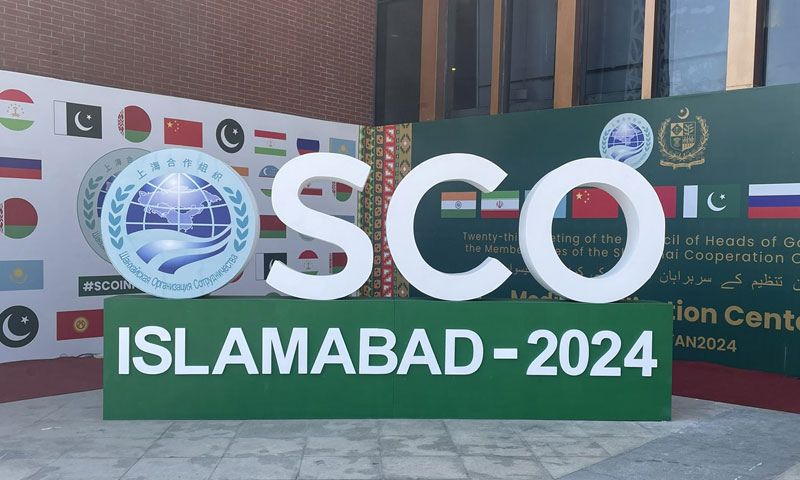ISLAMABAD: The Shanghai Cooperation Organization (SCO) summit in Islamabad presents a unique opportunity for member states to leverage Pakistan’s strategic geographical position in Eurasian connectivity, enhancing regional trade and investment for mutual benefit.
The gathering of top leaders from SCO member states not only allows Pakistan to strengthen its bilateral and economic ties with regional powers but also establishes the country as a crucial player in the broader Eurasian connectivity initiative. With vital infrastructure like the Karachi and Gwadar ports, airports, and motorways, Pakistan offers significant opportunities, especially for Central Asian Republics.
As the summit unfolds, the primary focus is on fostering regional peace, security, and prosperity through enhanced diplomatic and economic collaboration. This event marks a pivotal moment for Pakistan to elevate its economic and geopolitical aspirations on the international stage while emphasizing its principled stance on regional issues. Experts believe the SCO summit will open new avenues for investment in Pakistan.
Established in 2001, the SCO now comprises nine member states, including founding members China and Russia, along with members such as Pakistan, India, and Iran, which joined in 2017.
Professor Dr. Adnan Sarwar Khan, former chairman of the International Relations Department at the University of Peshawar, emphasized the summit’s potential for economic prosperity and foreign investment, noting Pakistan’s unique strategic location in South Asia as vital for trade and business. He stated that the summit provides an unparalleled opportunity for the nation to position itself at the center of regional connectivity.
Professor Dr. A.H. Hilali, former chairman of the Political Science Department at the University of Peshawar, highlighted the SCO’s role as a significant diplomatic platform capable of reshaping regional dynamics and enhancing economic cooperation, particularly for developing countries.
“Discussions on trade, regional connectivity, environmental concerns, and security challenges at the SCO are crucial for the stability of the region,” he remarked.
Dr. Naermur Khattak, former chairman of the Economics Department at the University of Peshawar, discussed the economic implications of hosting the SCO summit. “This event marks a significant shift in Pakistan’s focus from a geo-strategic to a geo-economic approach,” he explained, emphasizing the importance of enhancing connectivity with Central Asia.
With bilateral trade between Pakistan and China approaching $20 billion, integrating Central Asian resources through improved connectivity could yield substantial benefits for all parties involved. The Khyber Pass Economic Corridor (KPEC), which connects Peshawar with Afghanistan, has been approved and is expected to accelerate economic development and industrialization in the region.
The KPEC’s 47.5-kilometer four-lane expressway will link Pakistan with Afghanistan and, subsequently, the Central Asian Republics, with about $385.6 million funded by the federal government and approximately $75 million from the Khyber Pakhtunkhwa government.
Experts believe the SCO summit also serves as a platform for member leaders to engage in constructive dialogue on pressing regional issues. They predict that the recent inauguration of Gwadar airport by the Pakistani and Chinese prime ministers heralds a new era of prosperity for Balochistan, further solidifying Pakistan’s role as a key player in the region.
As discussions progress, the world’s attention is on Islamabad, where Pakistan is poised to make significant strides in asserting its influence and fostering collaboration within the SCO framework. Experts anticipate that the summit will conclude with a key declaration aimed at strengthening economic partnerships among member states for the mutual prosperity of their people.

























